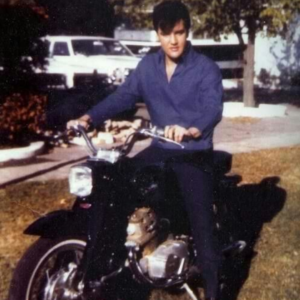
Elvis Presley: A Beacon of Comfort in “I’ll Be There”
Elvis Presley’s rendition of “I’ll Be There” stands as a timeless testament to the power of reassurance and the comforting presence of love. Originally penned by the prolific songwriting duo of Gerry Goffin and Carole King, the song found new life through Presley’s iconic interpretation. Released in 1970, it became a staple of his later career, showcasing a softer, more vulnerable side of the King of Rock and Roll.
Background
While the original version by The Drifters possessed a soulful urgency, Presley’s interpretation imbued the song with a sense of profound tenderness. His voice, rich and resonant, wrapped itself around the lyrics, creating a warm, comforting embrace for the listener. The arrangement, characterized by lush strings and gentle percussion, perfectly complemented Presley’s vocal delivery, fostering an atmosphere of intimacy and trust.
The song’s lyrics offer a message of unwavering support and devotion, promising to be a constant presence in times of trouble. Presley’s interpretation elevated these sentiments to new heights, transforming the song into a powerful anthem of hope and resilience. His ability to convey genuine emotion, coupled with the song’s universal theme, has ensured its enduring popularity.
“I’ll Be There” marked a significant departure from the rock and roll persona that had defined Presley’s early career. It showcased his versatility as an artist, demonstrating his ability to connect with audiences on a deeply personal level. The song’s success solidified his status as a cultural icon, a figure whose music could provide solace and comfort to millions.
Beyond its musical merits, “I’ll Be There” also reflects the evolving landscape of popular music in the late 1960s. As rock and roll gave way to a more introspective and melodic sound, Presley’s embrace of this ballad showcased his adaptability and willingness to experiment with new musical styles.
In the pantheon of Elvis Presley’s discography, “I’ll Be There” occupies a special place. It is a song that transcends generations, offering a message of love and support that remains as relevant today as it was when it was first released.